Paul Gill
The Grievance Dictionary: Understanding Threatening Language Use
Sep 10, 2020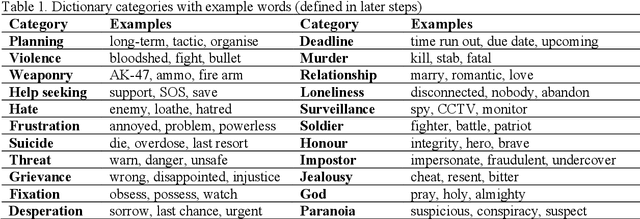

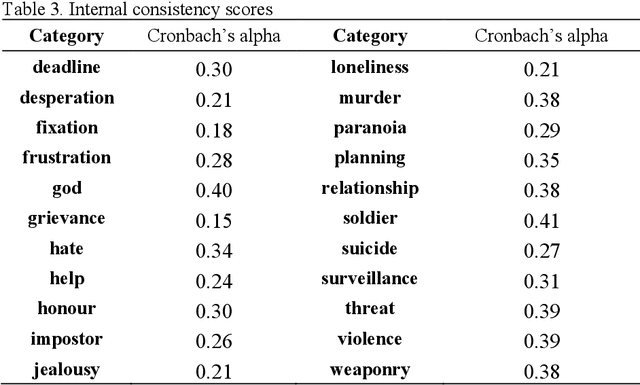
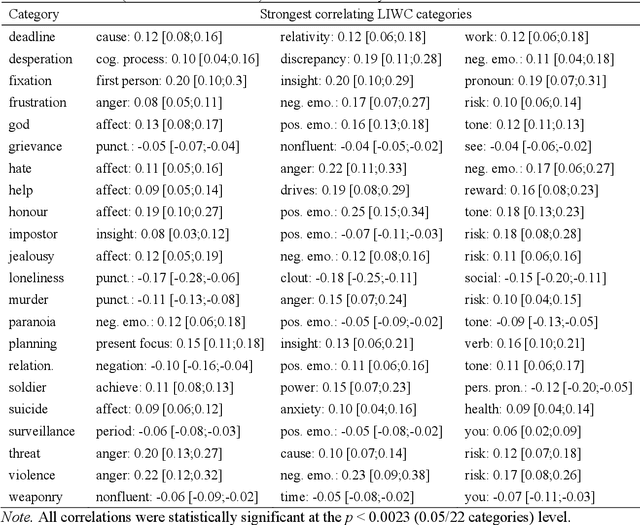
Abstract:This paper introduces the Grievance Dictionary, a psycholinguistic dictionary which can be used to automatically understand language use in the context of grievance-fuelled violence threat assessment. We describe the development the dictionary, which was informed by suggestions from experienced threat assessment practitioners. These suggestions and subsequent human and computational word list generation resulted in a dictionary of 20,502 words annotated by 2,318 participants. The dictionary was validated by applying it to texts written by violent and non-violent individuals, showing strong evidence for a difference between populations in several dictionary categories. Further classification tasks showed promising performance, but future improvements are still needed. Finally, we provide instructions and suggestions for the use of the Grievance Dictionary by security professionals and (violence) researchers.
Too good to be true? Predicting author profiles from abusive language
Sep 03, 2020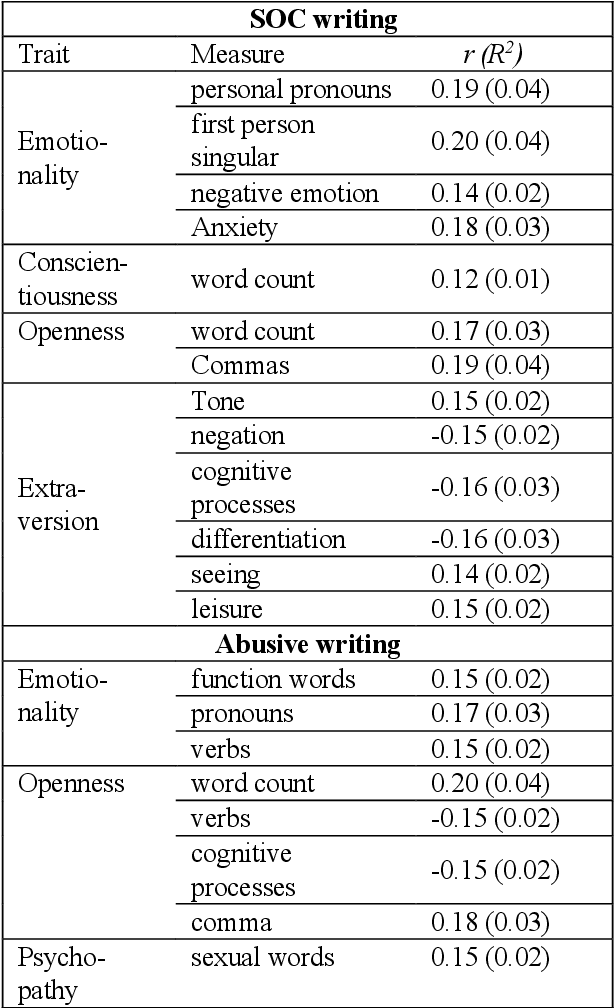
Abstract:The problem of online threats and abuse could potentially be mitigated with a computational approach, where sources of abuse are better understood or identified through author profiling. However, abusive language constitutes a specific domain of language for which it has not yet been tested whether differences emerge based on a text author's personality, age, or gender. This study examines statistical relationships between author demographics and abusive vs normal language, and performs prediction experiments for personality, age, and gender. Although some statistical relationships were established between author characteristics and language use, these patterns did not translate to high prediction performance. Personality traits were predicted within 15% of their actual value, age was predicted with an error margin of 10 years, and gender was classified correctly in 70% of the cases. These results are poor when compared to previous research on author profiling, therefore we urge caution in applying this within the context of abusive language and threat assessment.
Online influence, offline violence: Linguistic responses to the 'Unite the Right' rally
Aug 30, 2019
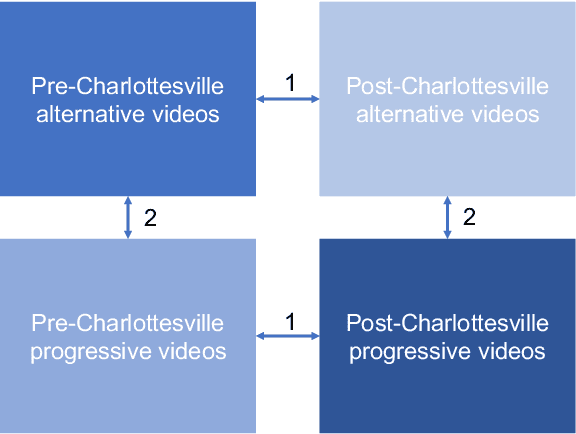
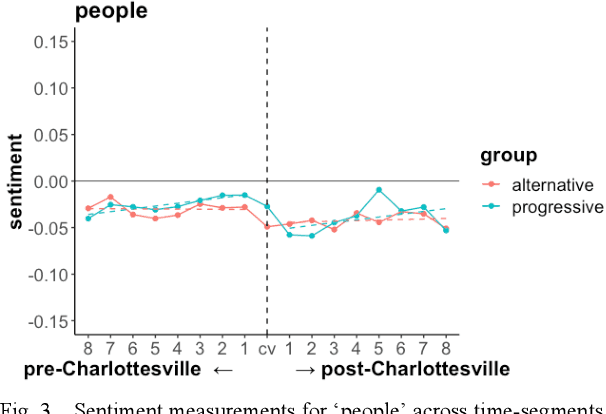
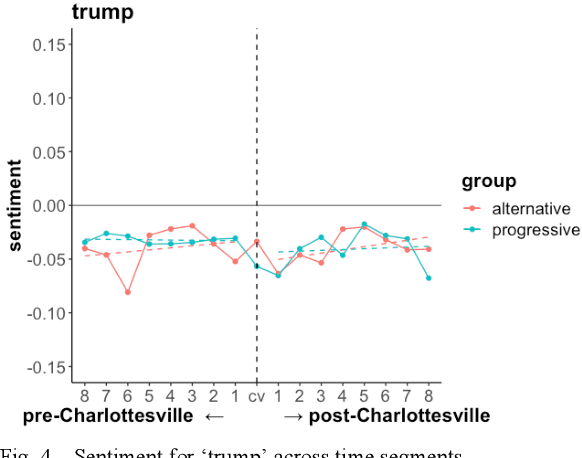
Abstract:The media frequently describes the 2017 Charlottesville 'Unite the Right' rally as a turning point for the alt-right and white supremacist movements. Related research into social movements also suggests that the media attention and public discourse concerning the rally may have influenced the alt-right. Empirical evidence for these claims is largely lacking. The current study investigates potential effects of the rally by examining a dataset of 7,142 YouTube video transcripts from alt-right and progressive channels. We examine sentiment surrounding the ten most frequent keywords (single words and word pairs) in transcripts from each group, eight weeks before to eight weeks after the rally. In the majority of cases, no significant differences in sentiment were found within and between the alt-right and progressive groups, both pre- and post-Charlottesville. However, we did observe more negative sentiment trends surrounding 'Bernie Sanders' and 'black people' in the alt-right and progressive groups, respectively. We also observed more negative sentiment after the rally regarding 'Democratic Party' in the alt-right videos compared to the progressive videos. We suggest that the observed results potentially reflect minor changes in political sentiment before and after the rally, as well as differences in political sentiment between the alt-right and progressive groups in general.
 Add to Chrome
Add to Chrome Add to Firefox
Add to Firefox Add to Edge
Add to Edge